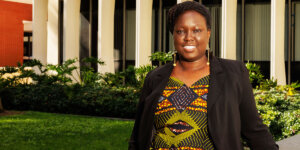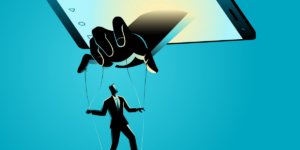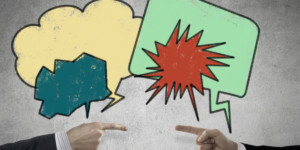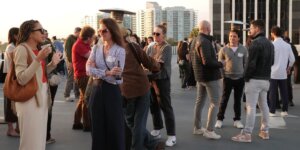
Isabel Epistelomogi, a USC undergrad in computer science and business administration, spoke at the SXSW EDU 2025 conference in Austin, Texas. Photo/Dani Orlando.
As a high school student during the 2016 elections, Isabel Epistelomogi saw firsthand how political polarization impacted her hometown of Waukesha, WI, tearing friend groups apart and pitting neighbors against each other.
Determined to make a change, Epistelomogi, now a computer science and business administration major at USC, found her calling in civic education, joining a nonprofit called the Institute for Youth in Policy (YIP Institute) as a junior.
“I noticed that people around me were able to overcome their differences by engaging in political discourse, and I’ve been investigating how we can expand that on a larger scale ever since then,” Epistelomogi said.
At USC, Epistelomogi’s research explores how students can reshape civic dialogue and spark civic engagement outside the classroom. She hopes to bring this practice to more classrooms across the US, which could help efforts to promote depolarization.
In the HUmans Lab, working under the direction of Emilio Ferrara and the guidance of PhD mentor Charles Bickham, she is investigating how social media shapes political discourse through the lens of emotional engagement and polarization.
Epistelomogi’s efforts have been noticed.
When specifically? Epistelomogi spoke at the SXSW EDU 2025 conference in Austin, Texas with co-speaker Maryam Zoweil, a student at the University of Texas, on the topic “Civics By Students, For Students: Depolarizing via Discourse.”
We sat down with Epistelomogi to find out more about her, her work, and the conference.
Can you tell me more about the research you presented at SXSW EDU?
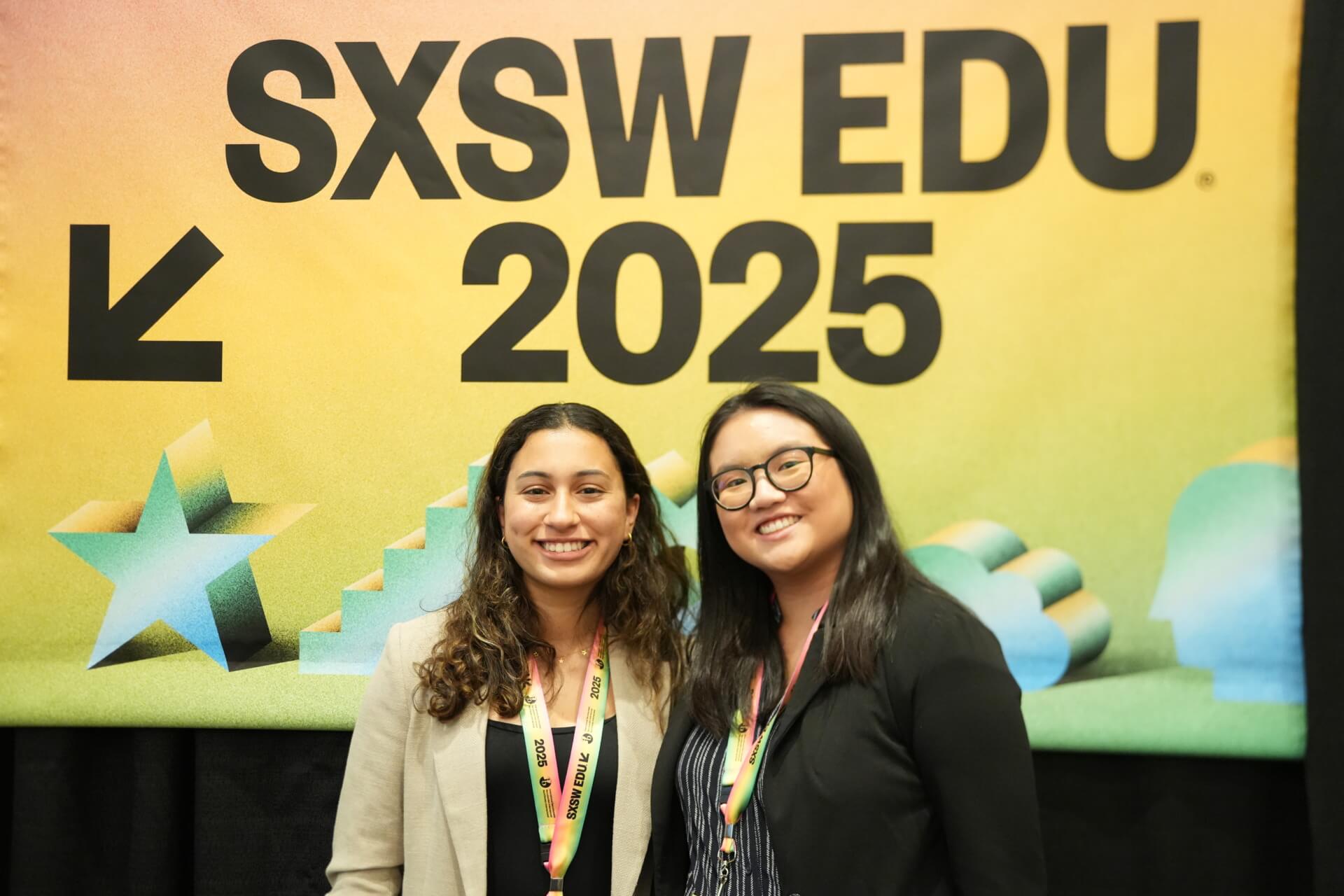
Isabel and her co-speaker Maryam Zoweil (from the University of Texas) presented their work at SXSW EDU 2025 recently. Photo/Akash Kataria.
At the Institute for Youth in Policy, we did a workshop with 36 high school and college students and asked them whether they thought the Second Amendment should be repealed. That’s the big money question they had to debate.
Then our moderators had them try to find a consensus, and agree on areas of similarity even though they came from different backgrounds.
Before and after the workshop, we had them take surveys to measure their civic engagement, polarization levels and understanding of the topic. We saw significant improvements in all three metrics after the workshop! The students shared that they felt more prepared to go into their communities and work to solve the polarization crisis. So, that’s what ultimately led my work to be featured at SXSW EDU.
How has your interest in civics education and political polarization influenced your work at USC?
While I was doing my civics education workshop, I talked to my research advisors at USC about how I could approach it at every step. I owe a huge debt to them.
Currently, I’m working with Charles Bickham, a computer science PhD student, to analyze about half a million TikTok videos related to the 2024 US election. We’re trying to identify if the videos are polarizing, and if people are expressing anxiety about the elections through tracking comment sentiments and classifying them through AI.
We found out that negative emotions are very commonly seen on TikTok election-related content, and these emotions often drive engagement as well. This gave me a huge understanding of how polarization manifests in people, especially young people – since that’s often who engages the most on TikTok.
This indirectly helps my civics education research for my SXSW EDU talk too, since we were speaking to and interacting with young people during the workshop.
What will be the future direction of your work?
For the work presented at SXSW EDU, our team at the YIP Institute’s Education Department developed a 500-page civics education curriculum that has been implemented in 11 schools across the country so far. We’ll be collecting more data on in-person classroom resources and continuing to measure the effectiveness of discourse in civics.
“I would love it if people could bring this toolkit into their communities and build unity, or help bridge misunderstandings.” Isabel Epistelomogi.
Coming from my own personal experiences of polarization and knowing that we’re making a difference across the country is incredible. It means so much that we’re able to do this!
What are your final thoughts on your research at USC?
For my research at USC, I’ve realized I can make such a difference doing research that can be implemented in real life. I’ve often seen my friends fall victim to political advertising and propaganda on TV or on social media. Being able to co-lead research on TikTok videos with Charles has been so exciting, and it’s allowed me to bring in all my own research experiences since high school. Having that understanding of the psychology behind polarization is so valuable, especially looking at social media and seeing how it works there.
I love how polarization and my research interests can span so many different fields. I can do computer science research, AI research, even humanities or communications research. It’s something that I’m passionate about that comes from a personal place.
Published on March 31st, 2025
Last updated on March 31st, 2025






